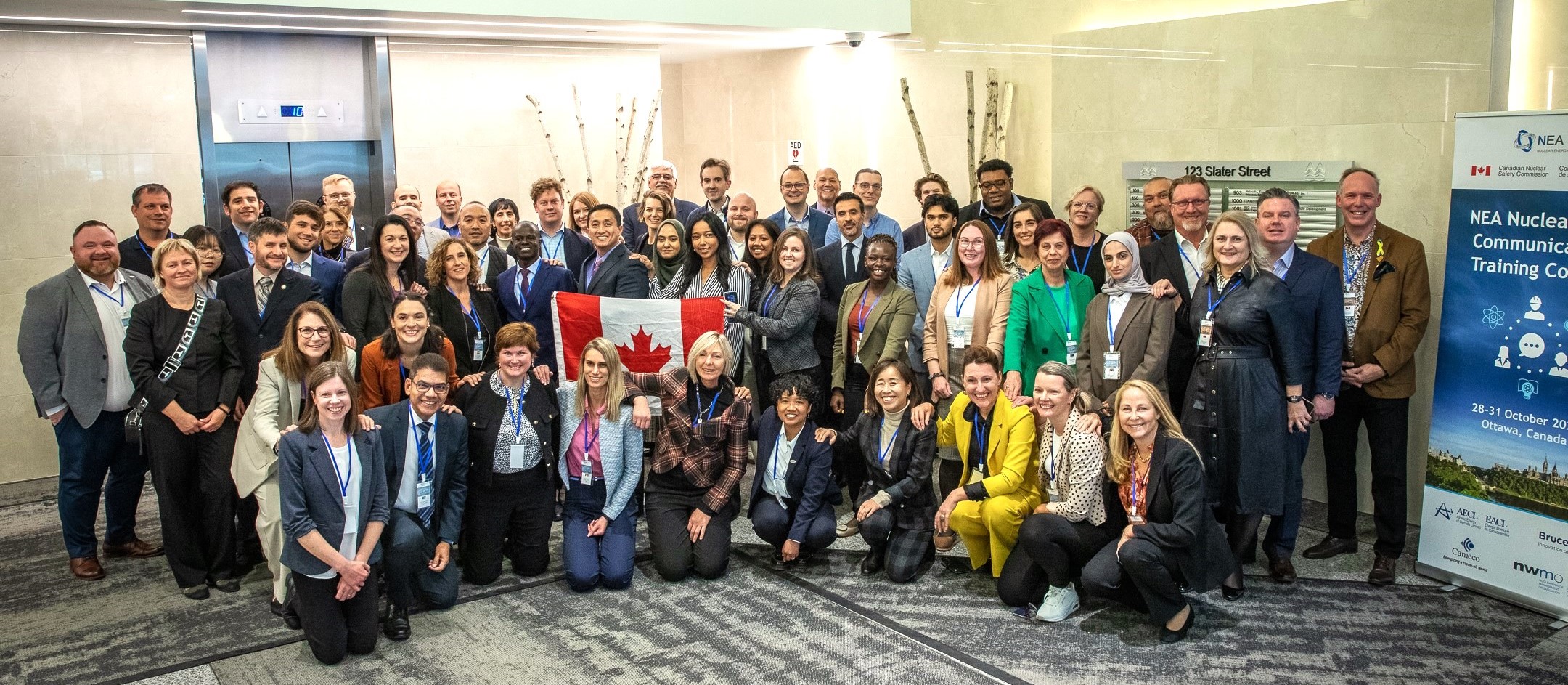Underscoring the importance of effective risk communication
Communicating to the public about risk is an important skill set for everyone in the nuclear sector. That’s why, for the past 2 years, the OECD Nuclear Energy Agency (NEA) has offered training tailored to professionals working in organizations responsible for communicating about nuclear and radiological risks.

The participants of the 2024 NEA Nuclear Risk Communication Training Course.
From October 28 to 31, the CNSC hosted the 2024 edition of the NEA’s Nuclear Risk Communication Training Course (RCTC) in Ottawa, Ontario. We were pleased to welcome over 60 students and lecturers from 25 countries. Over 4 days, participants engaged with communication experts and technical professionals, gaining valuable insights into the fundamentals of risk communication.
Our President, Pierre Tremblay, opened the forum by explaining how effective communication builds public trust by demonstrating openness and transparency. He also shared how proactive communication can directly impact safety outcomes by ensuring that the public has the information they need ahead of time to act in emergency situations.
“Now more than ever – here in Canada and around the world – the entire nuclear sector must prioritize accurate, clear and plain-language communications with the public and stakeholders.” – CNSC President Pierre Tremblay

President Tremblay welcomed participants to Ottawa.

Rhonda Walker-Sisttie, CNSC Director General of Strategic Communications, delivered a presentation on how to build trust.
At the CNSC, the communication of scientific, technical and regulatory information is an essential element of our important safety mandate. We prioritize thoughtful and strategic approaches to communication, with staff from across our organization engaging with communities and stakeholders nationwide. This includes participating in community events, engaging with the public during Commission proceedings, delivering educational presentations, and prioritizing relationship building with Indigenous Nations and communities through continued and meaningful consultation and engagement.
Our licence holders also have responsibilities with respect to communication and engagement. We require major nuclear licensees to develop and maintain a public information and disclosure program as a condition of obtaining and renewing a licence, and for ongoing compliance verification purposes. Through these requirements, we ensure that licensed activities relevant to the health, safety and security of people and the protection of the environment are effectively communicated to the public.
With the advancement of new and disruptive technologies such as small modular reactors and artificial intelligence, effective public communication is more important than ever to counter the growing risk of misinformation.
The NEA’s RCTC training is timely and globally relevant, as top-notch communication and engagement skills that reach new audiences are a critical component to building trust in an expanding nuclear sector.
Visit the NEA’s website to learn more about the 2024 Nuclear Risk Communication Training Course.
Page details
- Date modified: